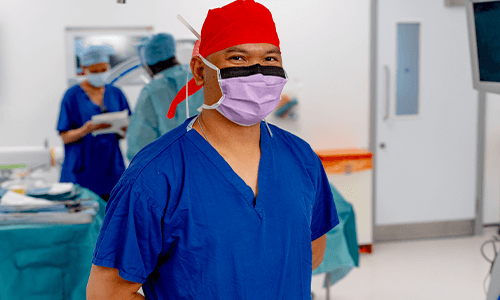Oaks Hospital Specialists
-
Mr Fateh Ahmad
Mr Fateh Ahmad is a Consultant Plastic, Reconstructive and Aesthetic Surgeon in Essex and Hertfordshire
Read more -

Mr Jonathan Britto
Mr Jonathan Britto is a Cosmetic Surgeon at Oaks Hospital in Colchester.
Read more -
Professor Peter Dziewulski
Prof Peter Dziewulski is a Consultant Plastic and Reconstructive Surgeon in Hertfordshire and Essex
Read more -
Mr Mat Griffiths
Mr Matthew Griffiths is a Consultant Plastic and Cosmetic Surgeon in Essex
Read more -
Mr Henry Lin
Mr Henry Lin BM BSc (Hon) FRCOphth (Lond) FEBO (Paris) FICO PGCert (Camb) Masters (Law, Lond: Merit) is a Cambridge-trained, Triple-accredited Consultant Ophthalmic Surgeon in Colchester, Essex providing bespoke personalised care in Eyelid, Tear Duct, & Cataract Surgery.
Read more -
Mr Makarand Tare
Mr Makarand Tare is a Cosmetic Surgeon in Essex who offers the full range of cosmetic surgery, skin cancer surgery and hand surgery services.
Read more


